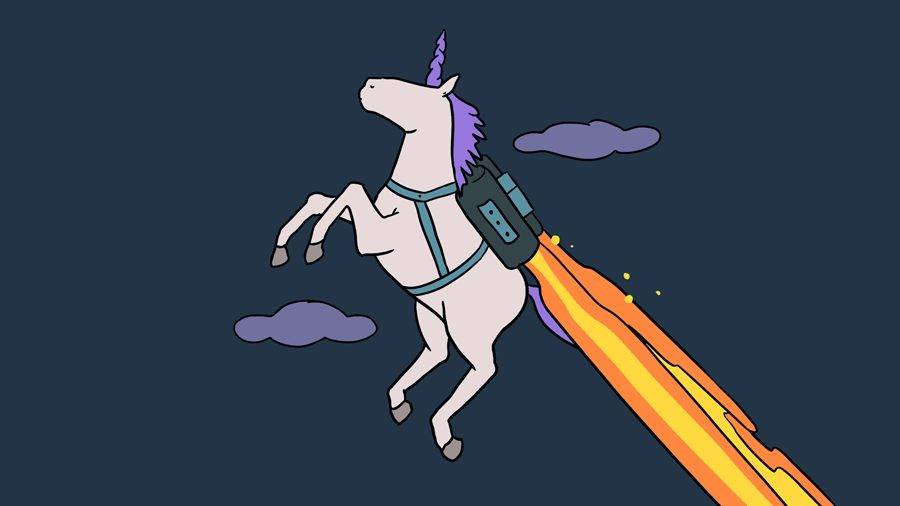Can Africa’s First ‘SPAC’d Startup’ Unlock A Whole New Level?

Like all interesting tech startups, Swvl started from a small room with no chairs somewhere in Cairo. But following some recent revelations that have filled the local ecosystem in the Middle East and North Africa (MENA) region with buzz, the Egyptian startup is well on its way to going public as MENA’s first unicorn to list on Nasdaq.
As the company announced on Wednesday, July 28, Swvl has struck a deal to go public in a merger with Special Purpose Acquisition Company (SPAC), Queen’s Gambit Growth Capital. It’s a deal that values the Cairo- and Dubai-based mass transit solution company at around USD 1.5 Bn.
If it all goes according to plan, this deal would represent a momentous development for a number of reasons: Swvl would technically be the first startup out of Africa to get SPAC’d; it’d the continent’s newest unicorn (and one of the fastest to cross the magical billion-dollar valuation as it’s taken just 4 years), and it’s in line to become the first unicorn startup from the MENA region to list on the New York Stock Exchange (NYSE). The transaction is expected to close in the fourth calendar quarter of 2021.
The listing will also make Swvl the first Egyptian startup to go public outside Egypt and the second to go public after Fawry. If Swvl debuts on the NYSE at a valuation of USD 1.5 Bn, that would be the largest African unicorn debut on any U.S.-listed exchange, surpassing even Jumia. The e-tailer famously debuted at USD 1.1 Bn in 2019.
Swvl was founded in 2017 by Mostafa Kandil, Ahmed Sabbah, and Mahmoud Noah, as a ride-sharing platform providing a semi-private alternative to public transportation. Its e-hailing platform enables cheap, organised, and convenient mass transit in several cities.
The making of a company with SPAC specs
The trio of co-founders started the company as a bus-hailing service in Egypt and it grew to offer other ride-sharing services in emerging markets with fragmented public transportation. After launching in Egypt, Swvl eventually expanded to Kenya and even made a brief stop-over in Nigeria.
Swvl’s African expansion was somewhat blighted by run-ins with the authorities in Kenya (The company was briefly banned in Kenya in October 2019, along with other bus-hailing apps due to regulatory issues). Efforts to resolve the dispute and appease the local transport authorities sort of blunted its endeavour and significantly marred its offerings in that market.
Hence, Swvl eventually moved its headquarters to Dubai and doubled down on the Middle East with cities in Saudi Arabia, Pakistan, Jordan, etc., now among the 10 megacities across Africa, Asia, and the Middle East where the startup currently has operations. Plans to expand into twenty more countries in the next few years are believed to be in the works.
Swvl’s haul of USD 170 Mn in venture capital raised since its inception places it as one of the most-funded startups in Africa and certainly the most-funded local transport tech venture.
The startup reported USD 20 Mn in revenue in 2020 and projects earnings for 2021 to be slightly under USD 80 Mn; with an ambitious target of USD 1 Bn by 2025. Swvl claims 1.4 million people have booked rides with the app and 46 million rides have been completed on its platform since launch.
Making bets on making bank
Swvl is being promoted as a company uniquely positioned to capitalize on a USD 1 Tn global market opportunity as a provider of tech-enabled mass transit across major cities. This is based on the potential of its parallel mass transit system which offers intercity, intracity, business-to-business (B2B) and business-to-government transportation.
By merging with Queen’s Gambit Growth Capital – a wholly women-led SPAC (the first of its kind) that raised USD 300 Mn in January before adding a further USD 45 Mn – Swvl becomes the first African startup to be targeted by the fascinating bunch of blank cheque companies that exist for the sole purpose of acquiring or merging with other companies.
Although SPACs have been around for quite some time, there’s been a renewed sense of excitement around these acquisition vehicles more recently. And the well-documented exploits of the famously non-conformist entrepreneur, Chamath Palihapitiya – whose USD 600 Mn SPAC ultimately bought a 49 percent stake in Richard Branson’s spaceflight company, Virgin Galatic – seems to have imparted a fresh sensational attribute on the SPAC game.
SPACs are essentially publicly traded shell companies that usually raise huge sums and typically have two years to find a target (usually a known growing company doing actual business that is open to a merger or acquisition).
SPACs are expected to zero in on targets and close deals within 24 months, or they have to return money to investors, plus interest. In some ways, it’s like being given plenty of money with the direction that you either spend it or get punished for not spending it within a period of time.
Barring the efforts of the storied Ivorian businessman, Tidjane Thiam, whose 300 Mn SPAC (christened Freedom Acquisition I Corp) is yet to land a target as of yet, SPAC activity has largely eluded Africa.
This has been attributed to a shortage of billion-dollar ventures with a global appeal. But it appears there’s value to be had in also targeting continuously scaling, global-thinking companies that could become unicorns with their next rounds. And it does seem like Swvl checks all those boxes.
Will there be many more deals like this one? Only time will tell.
Featured Image Courtesy: Crunchbase News